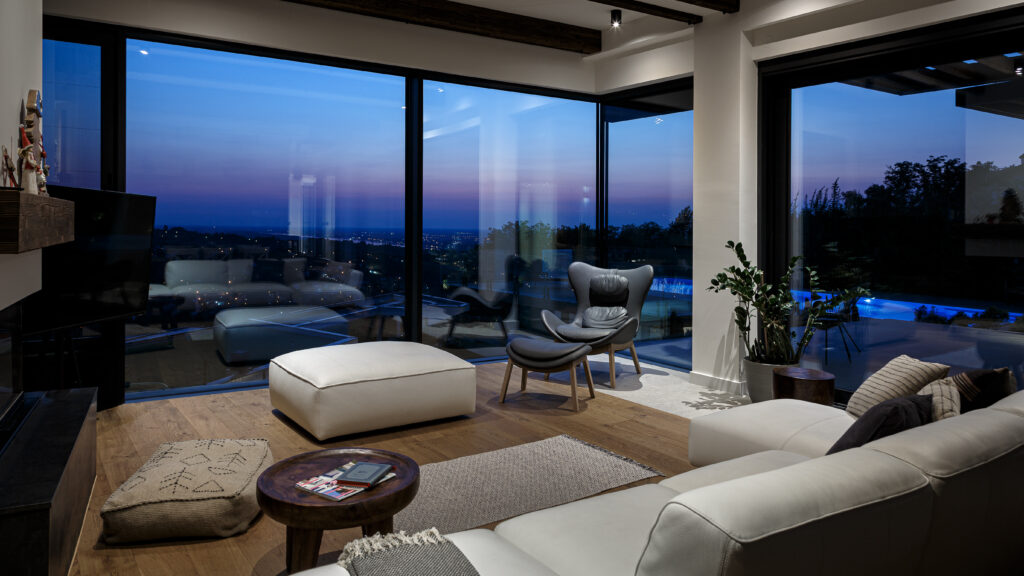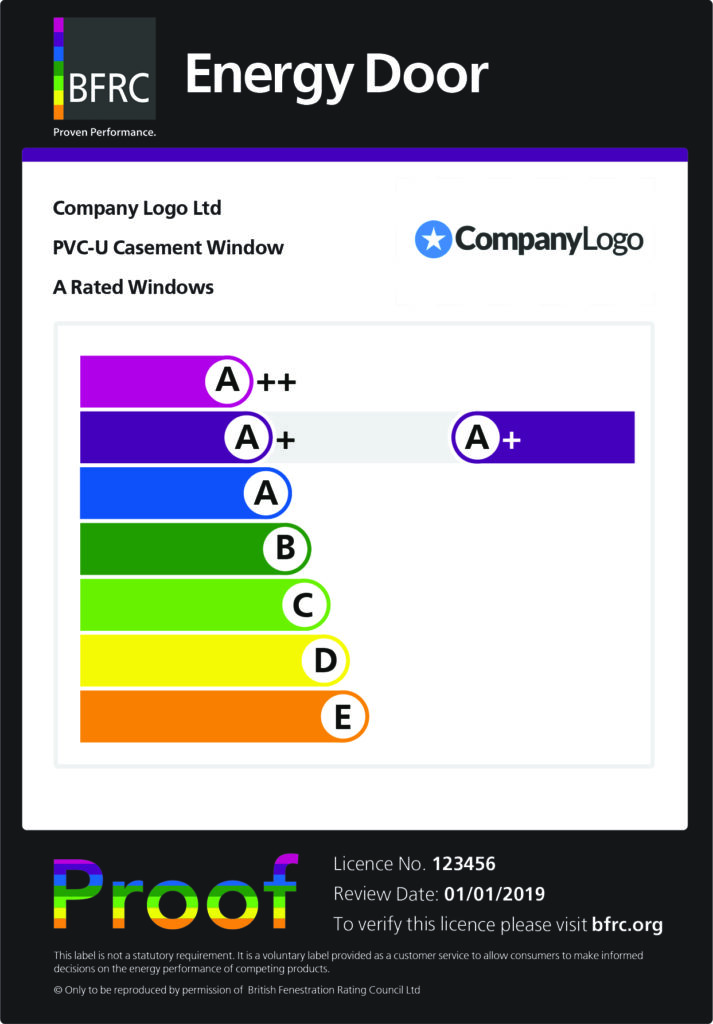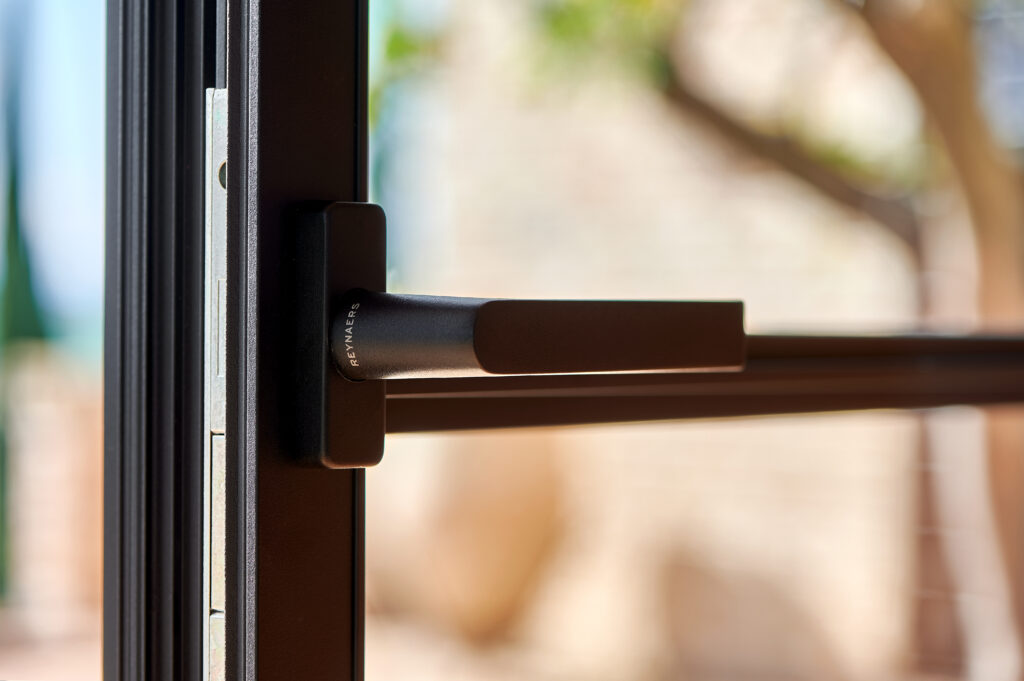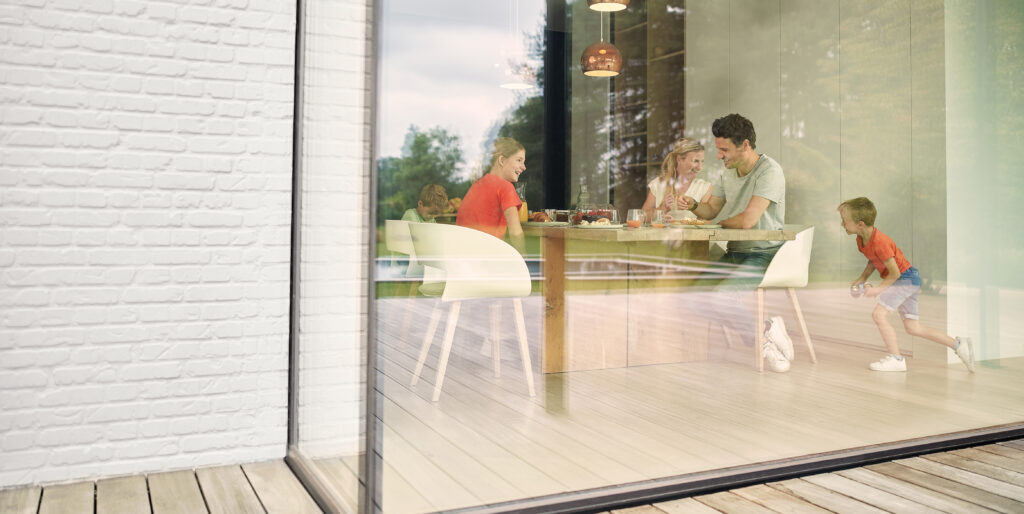There has been a long-standing debate about which material is best for new windows and doors – PVC-U or aluminium – but as time has moved on, so has the discussion. The way aluminium and PVC-U manufacturers assemble windows and doors and the components they use have changed and so too have the pros and cons list for each material. We understand it’s a big decision for you when you’re considering which would best suit your property, so here is an updated overview of the age-old question – aluminium or PVC-U?
Aesthetics
When it comes to the look of your new windows and doors, the style of the property and personal preference will come into play. Aluminium has to date proved particularly popular with more modern homes that require a contemporary look. In fact, there has been a substantial increase in demand for dark grey PVC-U windows trying to emulate aluminium, because the aluminium aesthetic has become so prevalent. But both materials can successfully be used in Heritage properties too. The finishes available on both aluminium and PVC-U frames to recreate an authentic woodgrain effect can really help any new window suite in with the rest of a more traditional property.

Maintenance
There is not a lot of difference between aluminium and PVC-U windows when it comes to maintenance. Both require regular cleaning to keep them looking at their best, but neither material needs painting nor varnishing in the same way timber windows do.
One thing you may want to consider, however, is the behaviour of each material in the heat and in the cold. PVC-U can expand and contract in more extreme weather conditions, which we are seeing more of across the UK in recent years, while aluminium keeps its shape whatever the weather. When windows and doors expand in warmer weather it can make it more difficult to close them and, in some cases, attempts to force them to close can cause damage.

Energy Efficiency
One of the discussion points that may be out of date when it comes to which material is better for windows and doors, is that of energy efficiency. Aluminium used to be perceived as a cold material, when in fact it is now equally as warm as its PVC-U counterparts. Using a thermal break in the aluminium frame, windows made of the material can achieve A++ Window Energy Ratings, just like the equivalent PVC-U home improvement products.
Pricing
For most of us, cost must be a factor when choosing which windows and doors we’d like in our homes. Aluminium has in the past had a reputation for being much more expensive than PVC-U and although the prices have converged over the years, aluminium windows today are probably still considered a more premium product. As with any other investment though, it’s worth considering the lifetime cost of the product, not just the upfront price. The life of an aluminium window for example is accepted to be longer than that of a PVC-U window, which means aluminium home improvement products will not need replacing as often as their PVC-U equivalents.
Security
When it comes to security, both aluminium and PVC-U windows and doors achieve excellent standards. Aluminium is inherently a stronger material that is harder to manipulate, but there are a few things you can look out for to give you peace of mind when it comes to keeping your home secure. The main certifications or features to ask about are Secured By Design, PAS 24 and high security locks and hardware. If all of these are in place on either aluminium or PVC-U windows, your windows will be safe.

Aluminium or PVC-U: The final answer is…
… entirely up to you! As this article hopefully highlights, both aluminium and PVC-U windows have a lot to offer. Each material has its strengths and weaknesses, but both can be considered excellent for home improvements. So, it comes down to personal taste, the style of the property in question, budget, and even the geographical location. Whatever material you choose, check the certifications for energy efficiency and security, and of course choose a reputable company to buy from. With all of that in place, your new home improvements are sure to be a success.

Need professional advice on design, specification or installation?
We have a network of carefully selected Partners who will help guide you through your home transformation process.
